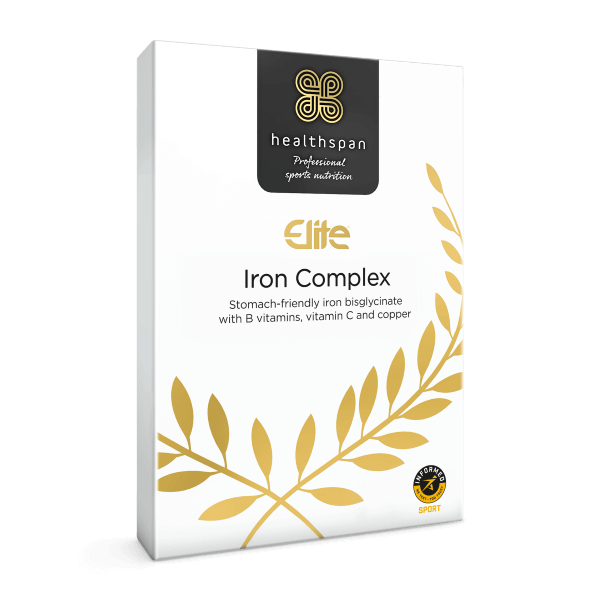One of the most underused tools to enhance performance in a training programme is rest and recovery. It's all very well focusing on becoming fitter and stronger, but it's essential to apply this same effort and commitment to recovery. Overlook it, and the body has no time to repair.
The easiest way to understand what muscle recovery means is to break it down into a combination of sleep, nutrition and relaxation. When these three factors are not optimised, the body can respond in certain ways – increased feelings of stress or lack of iron due to poor nutrition – that can have detrimental effects on muscle recovery. These are responses to poor overall wellbeing. So, through understanding the link between sleep, nutrition, relaxation and wellbeing improvement, here's how you can maximise your muscle recovery.
Brain functions, relaxation and stress
The link between healthy brain function and stress is an integral part of your wellbeing. The two brain functions that categorise our activities are: sympathetic activity and parasympathetic activity and here is why they can be essential factors in effective muscle recovery.
Sympathetic activity
Often known as the 'fight or flight' response, sympathetic activity is a physiological reaction occurring when we're confronted with something we see as potentially threatening or harmful. Unfortunately, most of us tend to be much too 'sympathetic' in life. Work, home, relationships and overtraining, for example, can throw the body into a fight or flight state. Whatever the cause, chronic sympathetic activity can lead to high levels of circulating cortisol and adrenaline – both produced by the adrenal glands – decreasing white blood cells and lowering the immune system.
Parasympathetic activity
This is what's known as the 'rest and digest' response: a slow response that restores balance in the body when there has been too much sympathetic activity. The heart rate and breathing evens out, blood flows evenly around the body and we tend to feel more relaxed.
When stress levels are chronically high and the adrenal glands continue to pump cortisol and adrenaline, our non-critical functions become inhibited. Digestion, liver metabolism and detoxification, cellular repair, immune function and reproduction are examples of this.
The result of this is hormonal havoc can lead to reproductive dysfunction, muscle loss and fat gain. Additionally, with all the cortisol and adrenaline pumping round the body, the adrenal glands eventually begin to slow production of cortisol and adrenaline – chronic fatigue can consequently set in. This is essentially the body shutting down because it's been running at a level that is too intense and this has a negative effect on a neuromuscular level: meaning we don't recover as efficiently as we should be. To counteract this, we need to encourage the parasympathetic state. So, how do we do that?
Reaching a parasympathetic state through sleep and nutrition
It's easy to take for granted the fact that the body requiring nurture after exercising. Despite a busy lifestyle, rest and recovery are critical components of any successful training program. It gives the body time to adapt to the stress of exercise; allowing the effects of training to really take effect. Recovery also allows the body to replenish energy stores depleted during training (muscle glycogen), repair damaged tissues broken down with exercise and restore any fluid loss from sweating.
Sleep
To help us along the way to full recovery, sleep is perhaps the most significant contributing factor. Adequate sleep (seven to ten hours for most athletes) helps promote mental health, hormonal balance and muscular recovery. To give you an idea of how bad it is to skimp on sleep, it can encourage insulin resistance (IR), glucose intolerance and testosterone reduction.
Nutrition
If sleep is the body's natural way of recharging, nutrition is its fuel to do so. Proper nutrition replaces the key nutrients the body loses during exercise and provides the building blocks needed to make adaptations from training. Exercise sparks these adaptations – such as muscle gain – but without recovery between workouts, performance and health may suffer. Efficient recovery means speedier progress, which means you can perform better in the future – whether that's improved speed, strength, endurance or power gains.
By getting your nutrition, exercise and your sleep patterns to optimal levels, you have a great chance of attaining a parasympathetic state because your stress levels will be lower as a result. This minimisation of stress can subsequently help inform how you spend your time outside of the gym. For example, reading a book for an hour, meditating, or just simply relaxing without booming stress levels are all parasympathetic activities. As a result, they will help your body in recovering from a gruelling workout more efficiently than if you didn't do them.
Iron to repair and replenish
So, with all that in mind, what role does iron play in muscle recovery? Well, taking on board carbohydrates, proteins, electrolytes and water is very important for your nutrition levels, as is getting nutrients from whole foods like rice, vegetables, fruit, and meat, while avoiding processed foods. We know that, during recovery time, these nutrient stores need to be replenished so tissue can repair effectively. To do this, iron should be a key nutrient in your diet.

Elite Iron Complex
Stomach-friendly Iron Bisglycinate with B Vitamins, Vitamin C and Copper
- 14mg of stomach-friendly iron bisglycinate (100% iron NRV)
- B vitamins to support red blood cell formation
- Copper and vitamin C to aid iron absorption into the body
Iron deficiency can lead to anemia, but this can be easily misdiagnosed as overtraining and fatigue due the symptoms of fatigue, irritability and feeling run down. Iron is responsible for transporting oxygen through the blood and muscles, creating red blood cells and supporting the electron transport system – controlling the release of energy from cells and contributing to a healthy immune system. Consequently, iron can help to improve overall health and wellbeing, which, as we know, promotes healthy muscle recovery. Iron is, however, lost through sweating, so this valuable nutrient is required at a higher level at times of rest and recovery.
Women and adolescents tend to have lower iron levels than men and could consider an iron supplement as a result. Anyone suffering with lower iron levels requires a diet rich in iron, including lean red meat, seafood, poultry, dark green leafy vegetables and some pulses. Iron deficiency doesn't just happen overnight – it begins slowly and is exacerbated by poor nutritional consumption.
All of the above factors, from your nutritional intake to your sleep patterns, play integral roles in helping you maximise your muscle recovery.










